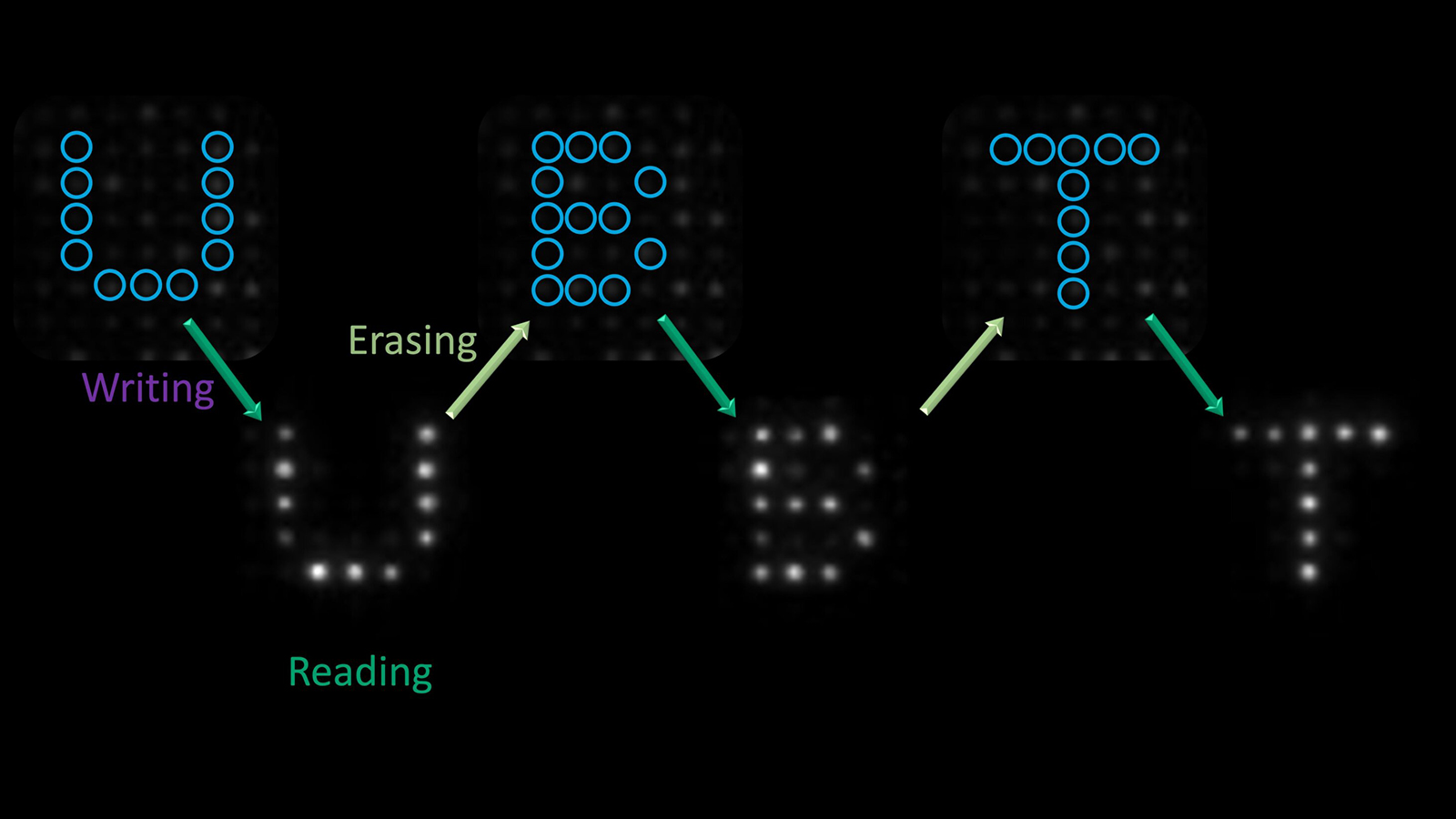Scientists create optically switchable photonic units, aiming to power the future of logic gates and microchips
Another step towards practical optical computing.

A research collaboration between the University of Bayreuth in Germany and the University of Melbourne has successfully devised an optically switchable photonic unit for storing and reading binary information using light. This development may be a big step towards a fully optical computer, where we use light energy (or photons) to process and store data.
The team behind the research, Prof. Dr. Jürgen Köhler, Prof. Dr. Mukundan of the University of Bayreuth, and Prof. Paul Mulvaney from the University of Melbourne, used these optical logical gates to process basic information purely using light. According to Phys.org, the team ran several read, write, and erase cycles on polymer spheres to write the alphabet on the same spot on a microstructured array.
Although scientists have been working on creating an all-optical logic gate for more than a decade now, this research is one of the first practical applications of the technology. A fully optical logic gate could allow us to transition our data processing and storage from electrons to photons, which could reduce the power demands of the digital age.
Aside from the possibility of reducing the electrical power requirements of computers, the research team also told Phys.org that optical computing gives us more multiplexing possibilities over electronic computers. “With light, you can use not only the signal strength (the number of photos) but also the wavelength (the frequency of color of the light) or the polarization (the direction of oscillation) to distinguish signals,” says Prof. Dr. Jürgen Köhler.
Optical multiplexing could potentially allow us to combine multiple different optical signals and allow them to be processed on the same optical logic gate. This could then potentially allow us to double, triple, or maybe even quadruple the processing power of a single optical processor, due to the increased bandwidth.
Photons (or light) travel faster and more efficiently than electrons. That’s why we’ve been pushing for the use of fiber optic cables for long-distance data transmission. Leveraging them in optical logic gates could be an important practical step in allowing us to use photons in data processing. This is an interesting development, as it could make our current computing technology exponentially more efficient, thus reducing the global power consumption of our data-driven society.
Stay On the Cutting Edge: Get the Tom's Hardware Newsletter
Get Tom's Hardware's best news and in-depth reviews, straight to your inbox.

Jowi Morales is a tech enthusiast with years of experience working in the industry. He’s been writing with several tech publications since 2021, where he’s been interested in tech hardware and consumer electronics.